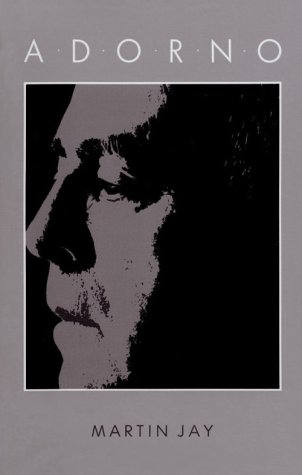Adorno
Martin Jay
BOOK REVIEW

The world of critical theory pulses with vibrant ideas and complicated legacies, but few figures have navigated this realm with the intellectual tenacity of Theodor W. Adorno. In Adorno, Martin Jay takes you on a strikingly immersive journey through the aesthetics, politics, and philosophy of one of the 20th century's most brilliant yet contentious thinkers. This isn't just another academic analysis; it's a vivid dive into the mind of a man whose thoughts still reverberate in modern discourse and illuminate the complexities of contemporary society.
Martin Jay skillfully unpacks Adorno's multifaceted persona-his pessimism, his sharp critiques of Enlightenment reason, and his refusal to offer easy answers. In a time marked by capitalist excess and rising authoritarianism, Adorno's reflections on culture and society remain astonishingly relevant. You'll find yourself grappling with his ideas on the "culture industry," which critiques how mass media and art are commodified, stripping culture of its critical potential. Here, Jay not only presents the theory, but also contextualizes it, showcasing how Adorno's thoughts illuminate our digital age-a time when entertainment often trumps enlightenment.
As you traverse this intellectual landscape, you'll encounter controversies and criticisms that swirl around Adorno-how his elitism and complex writing style have alienated many. Readers have debated whether his dense prose serves as a profound barrier or a necessary vehicle for deep thought. Adorno doesn't shy away from discomfort; rather, he invites it. You'll find opinions ranging from admiration to outright dismissal, revealing how deeply divisive his work can be. But isn't that the mark of a true thinker?
Jay navigates this discourse with aplomb, compelling you to confront not just Adorno's ideas but your own reactions to them. With a finesse that is both engaging and incisive, he explores Adorno's interactions with the likes of Horkheimer and Benjamin, pulling you deeper into the intricate web of the Frankfurt School's intellectual landscape. As you read, you feel the currents of history-the shattering chaos of war and its lingering shadows on the psyche of the modern individual. The writing isn't just about the past; it charges you to reflect on the present, questioning the realities you inhabit.
What makes Adorno truly captivating is Jay's critical engagement with the tangible consequences of Adorno's theories. He doesn't merely recount history; he challenges you to see the implications of Adorno's thoughts on contemporary issues like media influence, identity politics, and the persistent alienation in modern life. With each page, a sense of urgency builds-an almost frantic need to wrestle with these ideas and see how they intertwine with your personal experiences.
Readers have remarked on how Jay's fluid narrative style transforms what could be a dry intellectual biography into an emotionally resonant exploration of philosophy's stakes. You may find yourself laughing, nodding in agreement, or recoiling in discomfort as you grasp the enormity of what it means to engage with Adorno's legacy. Many have expressed feeling simultaneously enlightened and challenged-caught in a web of thought that refuses to let you fall into comfortable complacency.
Therein lies the magic of Adorno: it's an invitation to engage actively, to question assumptions, and to unearth the complexities of existence in a world that often prefers simplicity. Isn't it exhilarating, though? The act of peeling back layers, of wrestling with the contradictions and paradoxes that make up our reality? Embrace the turmoil; it's where growth happens.
Through Jay's insightful treatment, the emotional resonance of Adorno's work becomes palpable, ultimately compelling you to confront the world anew. His analysis serves as both a reflection and a call to action, reminding us that intellectual engagement is not merely an academic exercise-it is a necessity in a time of confusion and chaos.
As you turn the last pages of Jay's Adorno, one thing becomes painfully clear: the conversation must continue. It's not just about absorbing information; it's about invoking the spirit of critical inquiry that Adorno championed. With each thought-provoking page, you are left with a stark choice: to engage or to disengage from the tumultuous currents that define our existence today. And in a world rife with noise, embracing that challenge might be the most liberating decision you make. 🌍✨️
📖 Adorno
✍ by Martin Jay
🧾 200 pages
1984
#adorno #martin #MartinJay